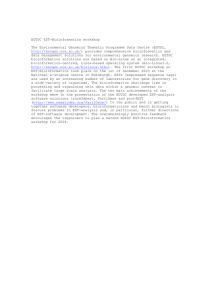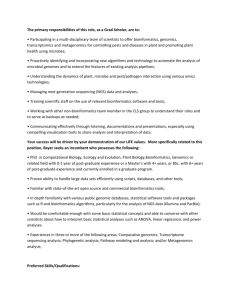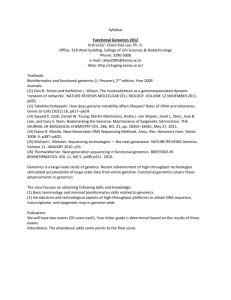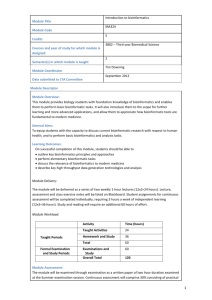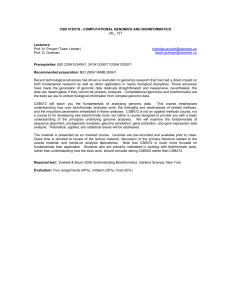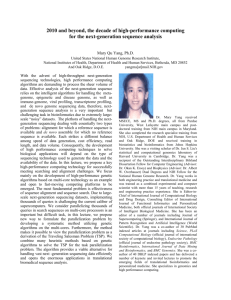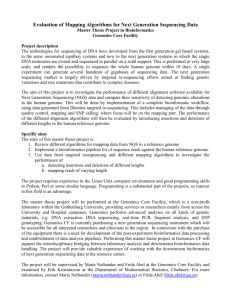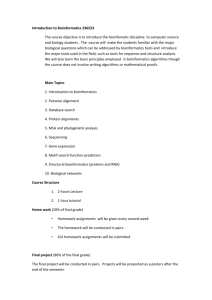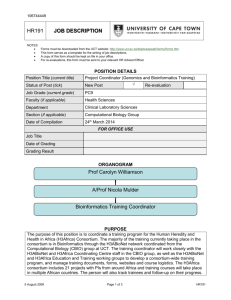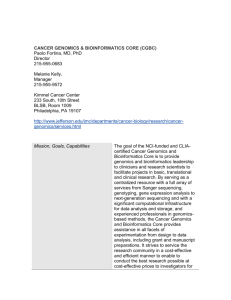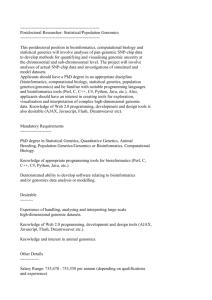Data Analysis for genomics technology
advertisement
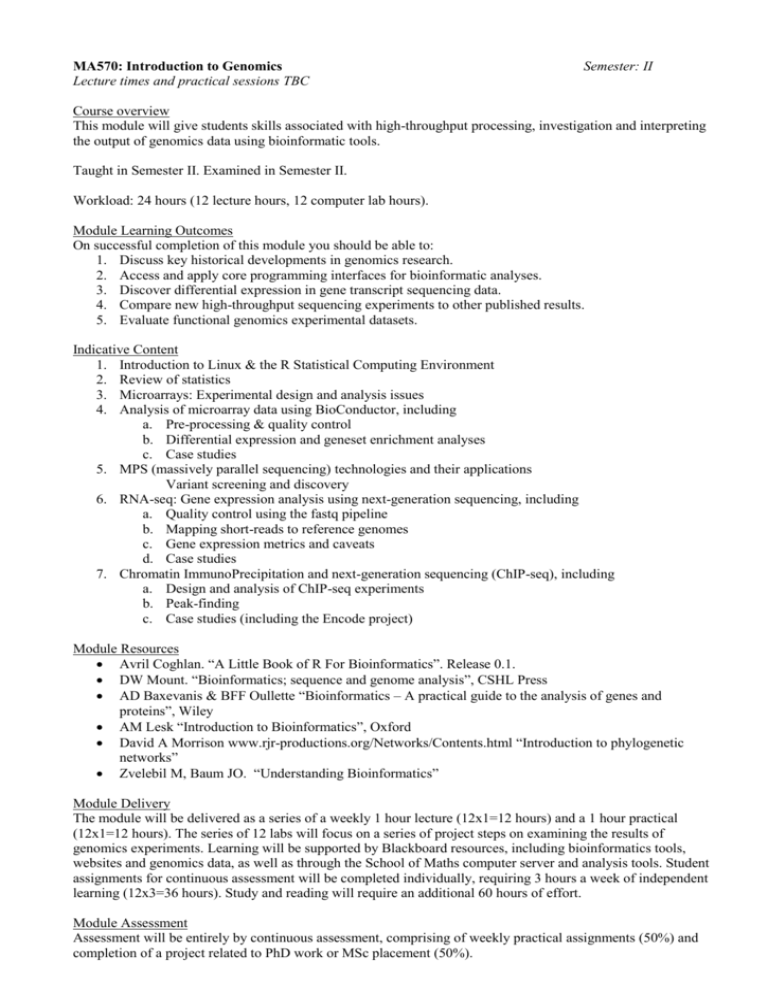
MA570: Introduction to Genomics Lecture times and practical sessions TBC Semester: II Course overview This module will give students skills associated with high-throughput processing, investigation and interpreting the output of genomics data using bioinformatic tools. Taught in Semester II. Examined in Semester II. Workload: 24 hours (12 lecture hours, 12 computer lab hours). Module Learning Outcomes On successful completion of this module you should be able to: 1. Discuss key historical developments in genomics research. 2. Access and apply core programming interfaces for bioinformatic analyses. 3. Discover differential expression in gene transcript sequencing data. 4. Compare new high-throughput sequencing experiments to other published results. 5. Evaluate functional genomics experimental datasets. Indicative Content 1. Introduction to Linux & the R Statistical Computing Environment 2. Review of statistics 3. Microarrays: Experimental design and analysis issues 4. Analysis of microarray data using BioConductor, including a. Pre-processing & quality control b. Differential expression and geneset enrichment analyses c. Case studies 5. MPS (massively parallel sequencing) technologies and their applications Variant screening and discovery 6. RNA-seq: Gene expression analysis using next-generation sequencing, including a. Quality control using the fastq pipeline b. Mapping short-reads to reference genomes c. Gene expression metrics and caveats d. Case studies 7. Chromatin ImmunoPrecipitation and next-generation sequencing (ChIP-seq), including a. Design and analysis of ChIP-seq experiments b. Peak-finding c. Case studies (including the Encode project) Module Resources Avril Coghlan. “A Little Book of R For Bioinformatics”. Release 0.1. DW Mount. “Bioinformatics; sequence and genome analysis”, CSHL Press AD Baxevanis & BFF Oullette “Bioinformatics – A practical guide to the analysis of genes and proteins”, Wiley AM Lesk “Introduction to Bioinformatics”, Oxford David A Morrison www.rjr-productions.org/Networks/Contents.html “Introduction to phylogenetic networks” Zvelebil M, Baum JO. “Understanding Bioinformatics” Module Delivery The module will be delivered as a series of a weekly 1 hour lecture (12x1=12 hours) and a 1 hour practical (12x1=12 hours). The series of 12 labs will focus on a series of project steps on examining the results of genomics experiments. Learning will be supported by Blackboard resources, including bioinformatics tools, websites and genomics data, as well as through the School of Maths computer server and analysis tools. Student assignments for continuous assessment will be completed individually, requiring 3 hours a week of independent learning (12x3=36 hours). Study and reading will require an additional 60 hours of effort. Module Assessment Assessment will be entirely by continuous assessment, comprising of weekly practical assignments (50%) and completion of a project related to PhD work or MSc placement (50%).
